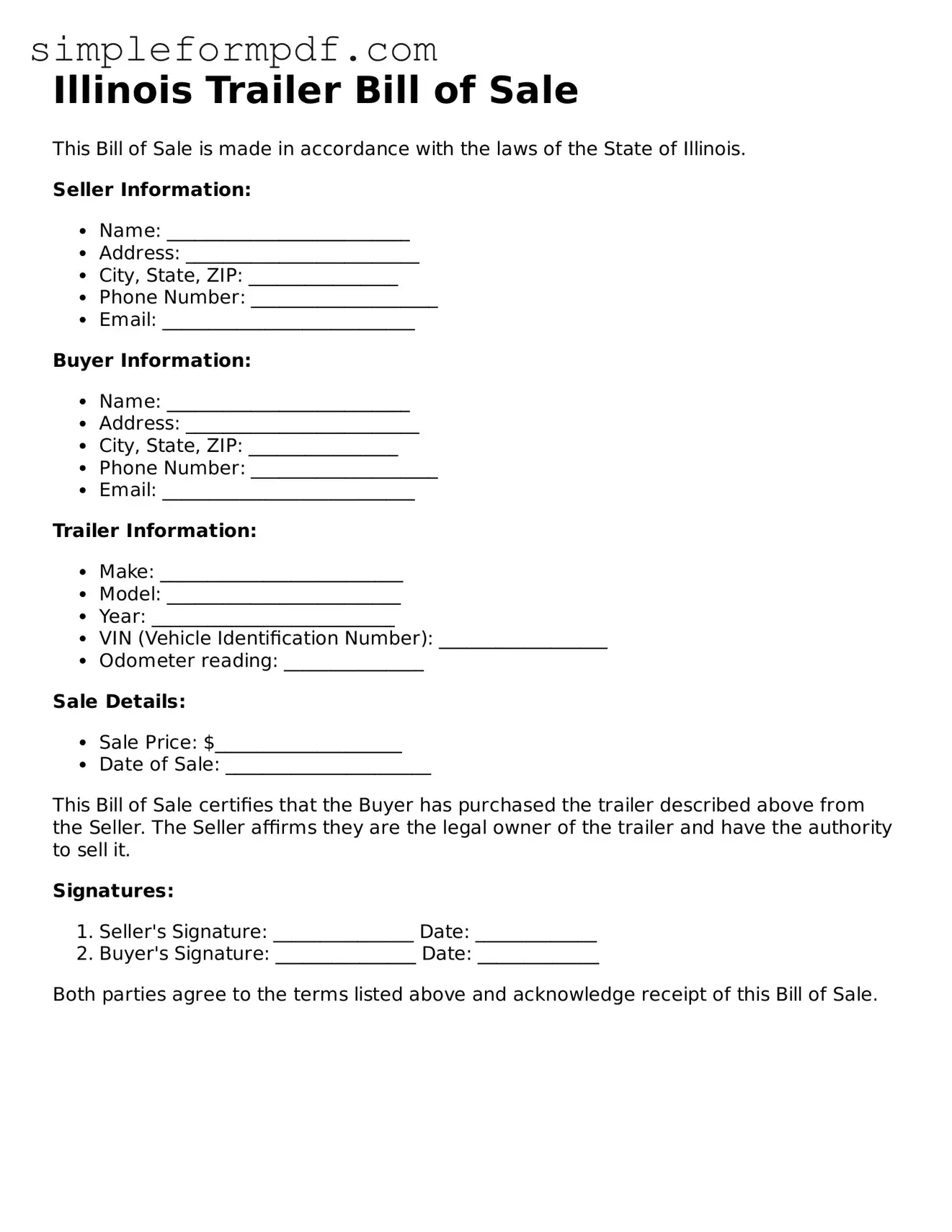Free Trailer Bill of Sale Form for the State of Illinois
The Illinois Trailer Bill of Sale form is a legal document used to transfer ownership of a trailer from one party to another. This form provides essential details about the trailer, including its identification and sale terms, ensuring a smooth transaction. If you're ready to complete your sale, fill out the form by clicking the button below.
Launch Editor

Free Trailer Bill of Sale Form for the State of Illinois
Launch Editor
Need instant form completion?
Finish Trailer Bill of Sale online in just a few minutes.
Launch Editor
or
Download PDF
